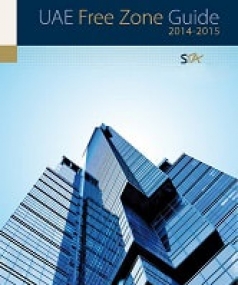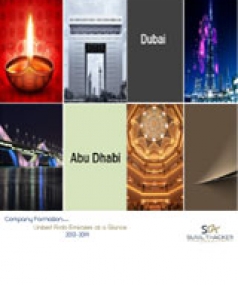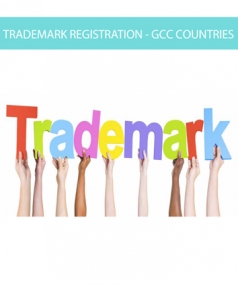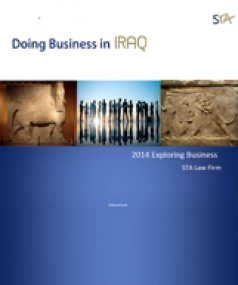Freezone Law: Bahrain International Airport
 1. What law established this free zone?
1. What law established this free zone?
Bahrain International Airport is not actually a Free Zone, although it is sometimes mistakenly referred to as one. The Airport Zone is governed by the Sovereign wealth fund of the nation, Mumtalakat.
2. What are the main internal regulations governing this free zone?
As the BIA is not a Free Zone, the regulations governing it are the same as any ordinary area of the nation. There are no specific internal regulations governing companies formed in it.
3. Does this free zone has reciprocal arrangements with other Free Zones?
No, there are no reciprocal agreements with other free zones.
4. What key areas of local legislation must a business operating in this free zone still comply with? What are the most important examples of how this affects operations?
Considering the nature of this area and the fact it is not a true free zone, the external regulations of the country are the primary regulations which must be abided by in the BIA. Some of the key laws are:
- The Commercial Companies Law, Bahrain Decree-Law No. 21/2001.
- The Labour Law issued in Bahrain Legislative Decree No. 36/2012.
- The GCC Common Customs Law of 2001.
5. What key agencies do businesses operating in this free zone need to register with or be aware of?
The crucial agencies to register with and obtain approval from depend on the businesses activities. Some of the key agencies are:
- Foreign Affairs Ministry;
- Industry, Commerce and Tourism Ministry.
However this list is not exhaustive.
6. How does a company set up in this Free Zone?
A commercial company is set up by:
- Completing an electronic application and submitting it to the relevant authorities in the MOICT to obtain approvals;
- Paying any municipal fees;
- Obtaining any external approvals;
- Documenting the Articles of Incorporation and Association;
- Publishing in the Official Gazette.
7. What features go companies set up in this Free Zone have?
As this is not a free zone company, there are no specific special features.
8. What can companies set up in this Free Zone do?
The key economic areas companies can have as their business activities are:
- Retail;
- Cargo Facilities;
- Advertising.
9. What can companies set up in this Free Zone not do?
Anything not related to the activities mentioned cannot be done in this airport zone. However, offices for companies as well as warehouses can be obtained for numerous purposes.
10. What types of business are allowed to operate in this Free Zone?
The key economic areas companies can have as their business activities are:
- Retail;
- Cargo Facilities;
- Advertising.
11. What inheritance laws apply in this free zone?
Bahrain is an Islamic nation and so the key regulation regarding inheritance is Islamic Sharia law apply.
12. What taxation applies?
There is no corporation tax in Bahrain at this point in time except in the oil and gas industry. There is a municipality tax of 10% on commercial properties and VAT has applied since 1 January 2019.
 13. What accounting and auditing rules do businesses operating in this free zone need to adhere to?
13. What accounting and auditing rules do businesses operating in this free zone need to adhere to?
The regulation concerning Bahrain's commercial companies and their financing and auditing is Bahrain Decree-Law No. 21/2001 as amended by Bahrain Decree-Law No. 50/2014.
14. Where do businesses operating in the free zone generally locate their bank accounts?
As the BIA is not a Free Zone, the corporate bank account has to be opened on the mainland as any other ordinary corporate bank account.
15. Are there any specific rules governing when the moveable property is removed from the free zone area or transferred into the free zone area from another jurisdiction?
Bahrain Airport is not a free zone and so when it comes to moveable property, the regulations which apply onshore apply in BIA.
16. Are any specific licenses required to operate as a particular type of company in this free zone?
Licences are the same as those found onshore and are dependent on the business activities being applied for and performed.
17. Is there any specific ongoing regulation or monitoring firms operating as particular types of companies by this free zone authority?
Bahrain Airport Zone is managed and run by Mumtalakat, the nation's sovereign wealth fund. Companies are also monitored by the Labour Ministry for employee-related matters and other ministries depending on the specific business activities. Please do not contact our team of lawyers in Dubai or representatives in Bahrain for more information.
18. How are disputes settled in this free zone?
There are a few methods to settle disputes. The Bahrain Chamber for Dispute Resolution is one entity. It was established by Bahrain Decree-Law No. 30/2009 and is an independent body responsible for settling corporate and Government disputes.
However, the types of disputes covered include arbitration and mediation rather than litigation.
The Bahrain Courts, which are made up of the civil law courts and the Sharia law courts handle litigation matters.
19. How are disputes between onshore companies and companies in this free zone settled?
This airport zone is not a free zone and so disputes are handled no differently.
20. What are the main rights and duties of an employer and employee working in this free zone?
The Labour Law contained in Bahrain Decree-Law No. 36/2012 covers labour matters including employer and employee duties.
The duties covered include working hours, end of service benefits and employee leave
21. How are employment disputes between employers and employees working in this free zone settled?
There are a few methods to settle disputes. The Bahrain Chamber for Dispute Resolution is one entity. It was established by Bahrain Decree-Law No. 30/2009 and is an independent body responsible for settling corporate and Government disputes.
However, the types of disputes covered include arbitration and mediation rather than litigation.
The Bahrain Courts, which are made up of the civil law courts and the Sharia law courts handle litigation
22. What entry qualifications and permits are required for staff working in this free zone, and how are employees registered with the authorities?
All requirements from employees are mentioned in the Bahrain Labour Law, Bahrain Decree-Law No. 36/2012. Requirements depends on the position of the employees as well as what is stated in their contracts concerning their benefits.
Employees must be registered by the company with the Labour and Social Affairs Ministry in order for them to receive a Certificate of Registration. An additional registration must be made with the General Organisation of Social Insurance and regular fees must be paid. For Bahraini nationals, these relate to pension as well as work related injuries, although for nonnationals, it only relates to work injuries. These registrations are performed through the appropriate online portals.
23. How are staff working within this Free Zone registered with the authorities?
All requirements from employees are mentioned in the Bahrain Labour Law, Bahrain Decree-Law No. 36/2012. Requirements depends on the position of the employees as well as what is stated in their contracts concerning their benefits.
Employees must be registered by the company with the Labour and Social Affairs Ministry in order for them to receive a Certificate of Registration. An additional registration must be made with the General Organisation of Social Insurance and regular fees must be paid. For Bahraini nationals, these relate to pension as well as work related injuries, although for nonnationals, it only relates to work injuries. These registrations are performed through the appropriate online portals.
24. What rules govern the remuneration and minimum benefits of staff working in this Free Zone?
The Bahrain Labour Law, Bahrain Decree-Law No. 36/2012 concerns all labour matters including minimum benefits and remuneration. Chapter 10 covers employee wages.
25. What rules govern the working time and leave of staff working in this Free Zone?
The Labour Law, Bahrain Decree-Law No. 36/2012 covers working times and leave for staff members. Article 82 of Bahrain Decree-Law No. 36/2012 for example covers sick leave and Chapter 11 of Bahrain Decree-Law No. 36/2012 covers working hours.
26. What are the main features of a property lease in this free zone, and what are the key restrictions when leasing a property?
Office space as well as warehouses are available in the zone. The area is fairly significant, although land itself is not available to purchase. Only pre-made spaces are available. Please get in touch with with us for more on company formation in Dubai and Bahrain.
27. Is it possible to apply for a building permit in this free zone? How is this done, and what steps are required?
Building permits are not available in the airport zone.
28. What environmental requirements must construction companies building in this free zone consider, e.g. form of building, landscaping or building height?
Construction companies cannot form and build in the airport zone.
29. What are the key restrictions when leasing a property in this Free Zone?
Office spaces and warehouses related to the permitted activities can be leased.
30. What are the rules governing the use of utilities in this free zone?
Utility related regulations do not concern this airport zone as it is not considered a free zone.
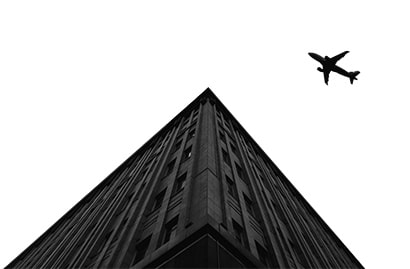 31. How do retail premises establish themselves in this Free Zone?
31. How do retail premises establish themselves in this Free Zone?
Retail premises must obtain a license for their particular activity and can then obtain office space or warehouse in the airport zone.
32. Is it possible for hotels and retail establishments to operate in this free zone- how do they establish themselves?
Retail premises must obtain a license for their particular activity and can then obtain office space or warehouse in the airport zone.
The full version of this questionnaire has been published by STA on Lexis Nexis and can be viewed by clicking here
 English
English
 عربي
عربي Русский
Русский 官话
官话 português
português
 Türk
Türk 











